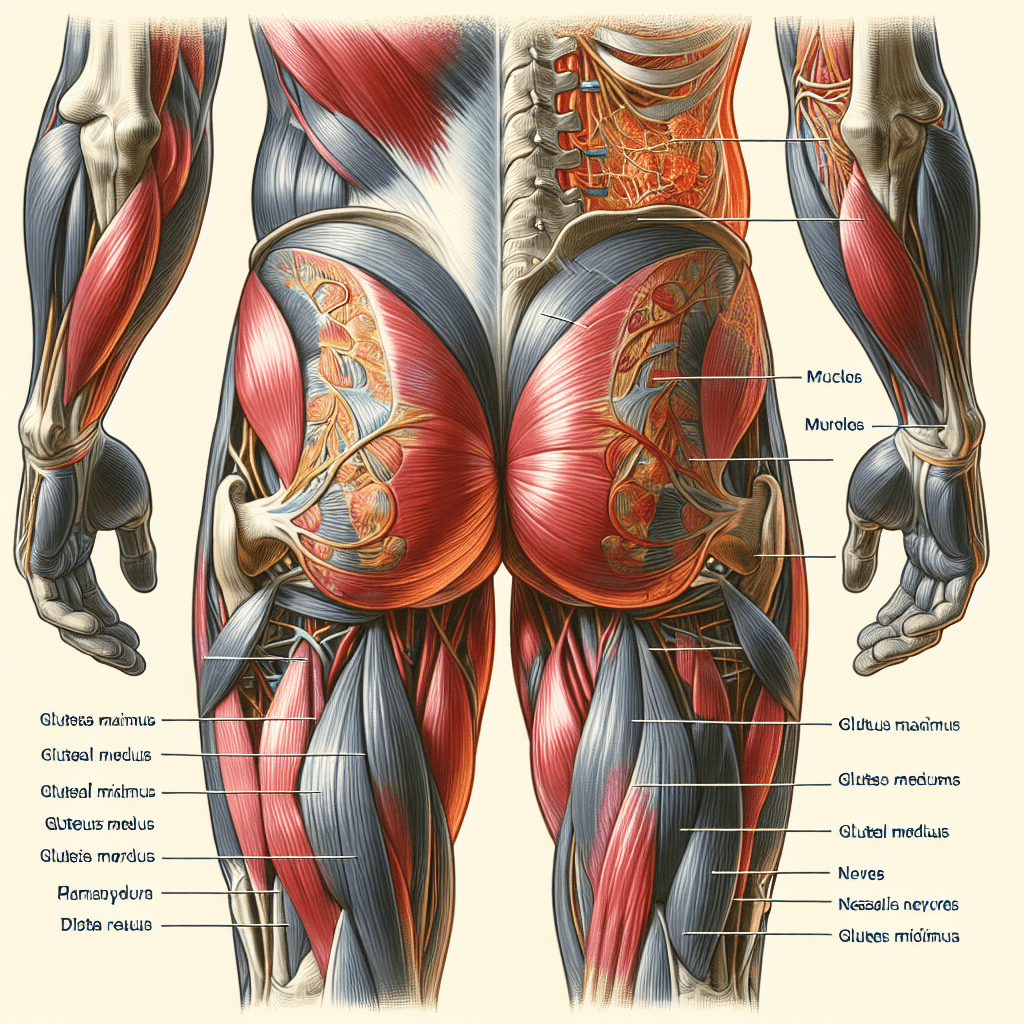Understanding the Various Causes of Buttock Pain
Buttock pain is a common complaint that can arise from various underlying conditions, ranging from musculoskeletal issues to neurological disorders. The pain may be felt in one or both buttocks and can vary in intensity, character, and duration. Recognizing the specific symptoms and characteristics of buttock pain can help individuals and their healthcare providers identify the most likely cause and determine an appropriate management plan.

Common Symptoms Associated with Buttock Pain
- Dull, Achy Pain
- Description: A persistent, throbbing discomfort in the buttocks that may be felt deep in the muscles
- Characteristics:
- May worsen with prolonged sitting or standing
- Can be relieved by changing positions, stretching, or massage
- Often associated with muscle strain or overuse injuries
- Sharp, Shooting Pain
- Description: A sudden, intense pain that may feel like an electric shock or stabbing sensation in the buttocks
- Characteristics:
- May radiate down the leg or up the spine
- Can be triggered by specific movements or positions
- Often associated with nerve compression or irritation, such as in sciatica or piriformis syndrome
- Burning or Tingling Sensation
- Description: A feeling of warmth, prickling, or numbness in the buttocks or surrounding areas
- Characteristics:
- May be accompanied by skin sensitivity or redness
- Can be constant or intermittent
- Often associated with nerve-related conditions or circulatory problems
- Stiffness or Tightness
- Description: A feeling of reduced flexibility or range of motion in the buttocks or hips
- Characteristics:
- May cause difficulty with activities such as walking, bending, or rotating the hips
- Can be worse in the morning or after periods of inactivity
- Often associated with arthritis, bursitis, or muscle tension
- Swelling or Tenderness
- Description: Visible enlargement or increased sensitivity to touch in the buttocks
- Characteristics:
- May be accompanied by skin discoloration or warmth
- Can be localized to a specific area or widespread
- Often associated with injuries, infections, or inflammatory conditions
While many cases of buttock pain resolve with self-care measures or conservative treatment, some symptoms may indicate a more serious underlying condition. You should seek medical attention if you experience:
- Severe or sudden onset of buttock pain
- Pain that persists for more than a few days or worsens over time
- Buttock pain accompanied by numbness, tingling, or weakness in the legs
- Pain that is associated with significant swelling, redness, or warmth in the buttocks
- Buttock pain that occurs after a fall, trauma, or direct blow to the area
- Pain that is accompanied by fever, chills, or unexplained weight loss
- Buttock pain that interferes with your daily activities or quality of life
If you are unsure about the severity or cause of your buttock pain, it is always best to consult with a healthcare professional for a proper evaluation and guidance.
Less Common Symptoms Associated with Buttock Pain
In some cases, buttock pain may be accompanied by less common symptoms that can provide important clues about the underlying cause:
- Bowel or Bladder Dysfunction
- Description: Difficulty controlling bowel movements or urination, or changes in the frequency or consistency of stools
- Possible Causes: Cauda equina syndrome (a rare but serious condition affecting the nerves at the base of the spine), spinal cord injury, or certain neurological disorders
- Groin or Genital Pain
- Description: Discomfort or pain in the groin, genitals, or inner thighs that may be related to buttock pain
- Possible Causes: Sacroiliac joint dysfunction, hernias, or referred pain from conditions such as endometriosis or prostatitis
- Fever or Chills
- Description: An elevated body temperature (above 100.4°F or 38°C) or episodes of shivering and sweating
- Possible Causes: Infections affecting the bones, joints, or soft tissues of the buttocks, such as osteomyelitis, septic arthritis, or cellulitis
- Unexplained Weight Loss
- Description: Unintentional loss of body weight without changes in diet or exercise habits
- Possible Causes: Chronic infections, inflammatory conditions, or in rare cases, tumors affecting the bones or soft tissues of the buttocks
When to Seek Medical Attention for Buttock Pain
While many cases of buttock pain can be managed with self-care measures or conservative treatment, some situations require prompt medical evaluation:
- Severe or sudden onset of buttock pain that limits your ability to function
- Buttock pain that persists for more than a few days or worsens despite self-care measures
- Pain that radiates down the leg or is accompanied by numbness, tingling, or weakness
- Buttock pain associated with significant swelling, redness, or warmth in the affected area
- Pain that occurs after a fall, trauma, or direct blow to the buttocks
- Buttock pain accompanied by fever, chills, or unexplained weight loss
- Pain that interferes with your daily activities, work, or quality of life
If you experience any of these symptoms or have concerns about your buttock pain, consult your healthcare provider for a thorough evaluation and personalized treatment plan. Early diagnosis and intervention can help prevent complications and improve outcomes.
Conclusion
Buttock pain is a common complaint that can result from various underlying causes, ranging from musculoskeletal strains to neurological disorders. Recognizing the specific symptoms and characteristics of buttock pain, such as the nature and location of the discomfort, can help individuals and their healthcare providers identify the most likely cause and determine an appropriate management strategy.
If you experience severe, persistent, or concerning buttock pain, don't hesitate to seek medical attention. Your healthcare provider can perform a thorough evaluation, order necessary diagnostic tests, and develop a personalized treatment plan to alleviate your symptoms and address the underlying condition.
By working closely with your healthcare team and adopting a proactive approach to your musculoskeletal health, you can effectively manage buttock pain, prevent complications, and maintain your overall well-being and quality of life.